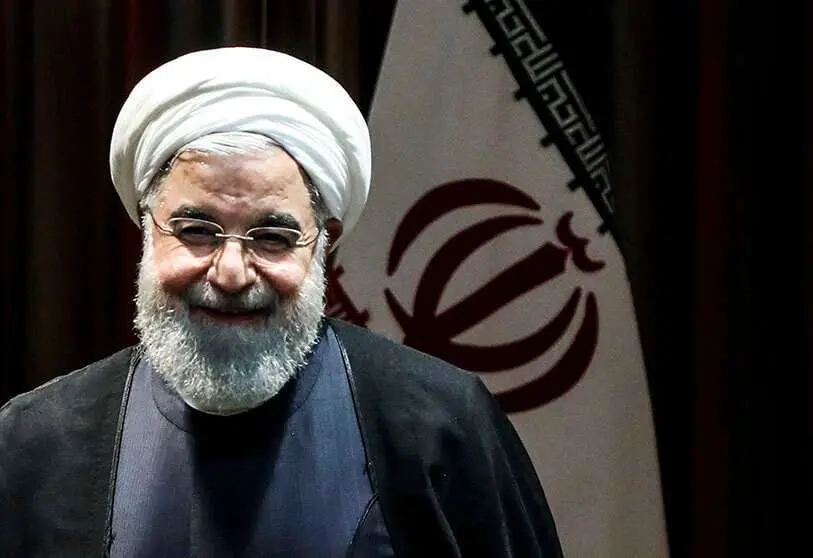Hassan Rouhani alerts Iran should assume worst-case coronavirus scenario

Iran continues to be one of the countries proportionally most affected by the coronavirus pandemic devastating the world and President Hassan Rouhani warned that Iranian citizens should prepare for the worst possible scenario caused by the COVID-19 disease. Nevertheless, according to official figures, there was a respite on Sunday, as 60 deaths were recorded due to this plague, the lowest number in recent days.
The Islamic Republic of Iran has more than 5,700 deaths and more than 90,000 cases diagnosed due to the spread of the coronavirus in its territory, and is one of the worst hit countries in the world and the most punished in the Middle East. Hence the warning issued by the President to continue facing this scourge.
Though the Ministry of Health confirmed last Sunday there were 60 new deaths from coronavirus, the lowest daily death toll in recent days, the number of infections has surpassed 90,000.
However, the 1,153 cases reported in the last 24 hours represent a slight increase from the 1,134 cases reported on Saturday, according to ministerial spokesman Kianush Jahanpur. Of those admitted, 3,079 people are in critical condition.

President Rouhani encouraged the population on the state TV, especially during the holy month of Ramadan, after warning his fellow countrymen of the harsh scenario that may continue to arise due to the coronavirus.
The leader stressed the total disposition of the Iranian Executive to help the population and wished to raise their spirits. "Of course, our people have always come to the scene whenever there have been floods, earthquakes and other problems. Now, the month of Ramadan is also one of those occasions during which people should step forth and help in the face of hardships and problems.”
The alert issued by the President also has a lot to do with the economic situation the nation is going through and the financial plans the country should undertake to deal with the current panorama caused by the cessation of much of the activity in the face of the COVID-19 pandemic.

"We urge long-term production planning based on a pessimistic view that we could still be facing this virus for months to come," Rohaní said in a meeting with executives from private Iranian companies that was echoed by state TV. "Maybe (we will face this) till the end of the year, we do not know," Rouhani added, referring to the Iranian calendar year which ends in March 2021.
Already last week, Iran decided to start opening inter-city highways and large shopping centres to start reviving its economy, which has been severely shaken by the current health crisis that has led to a general standstill.

Thus, it was decided to relax controls in view of a slight improvement in the numbers of new cases of people affected by the pandemic in recent days, although it is feared that this recent reopening will cause a new wave of infections.
Iranian leaders have been arguing their position in pursuit of the goal of improving the national economy and mitigating the financial blow caused by the interruption of social and economic flow caused by the health crisis.
The situation is not easy. The nation is plunged into a fall in oil prices, its main source of funding, and is also affected by the harsh political and economic sanctions imposed by the United States following the 2018 US exit from the nuclear deal signed with Iran and with powers such as France, Germany, the United Kingdom, China, Russia and the European Union (EU) in 2015 to limit Iran's atomic programme (JCPOA), mainly in relation to weapons.
Trump's US government decided to abandon the agreement when it denounced Iran's failure to comply with terms and decided to apply a series of embargo measures, especially those related to crude oil, which dealt a heavy blow to the Persian economy.
Following this measure, Hassan Rohani himself responded firmly by announcing that he would continue to trade in his oil and threatening to blockade the Strait of Ormuz, the main passage area for world oil trade.
This situation opened a spiral of incidents related to cargo ships in Gulf waters and attacks on oil and airport infrastructures in Saudi Arabia, a great rival of Iran in the Middle East and the main representative of the Sunni branch of Islam, as opposed to the Shiite branch defended by the Islamic Republic of Iran.
The international community and the Arab community (with some exceptions such as Qatar) pointed to Iran and pro-Iranian agents as responsible for these offensives. The This was denied by the Ayatollah's regime, which is known for its interference in the affairs of other neighbouring states through the Quds Forces, international division of the Islamic Revolutionary Guard (elite body of the Iranian Army); as is the case of Lebanon, with the Iranian support of the Hamas Shiite militia; Syria, with the support of the Afghan-born Shiite militia Liwa Fatemiyoun; Yemen, with the support given to the Hutu rebels in the Yemeni civil war; or Iraq, with the alliance established with The People's Mobilization Forces (PMF).







